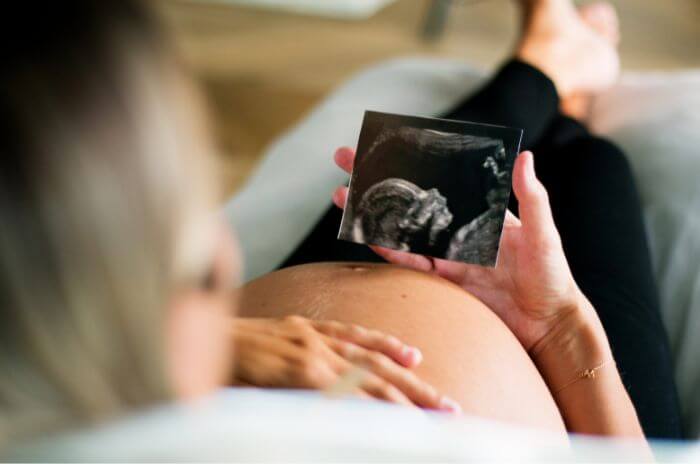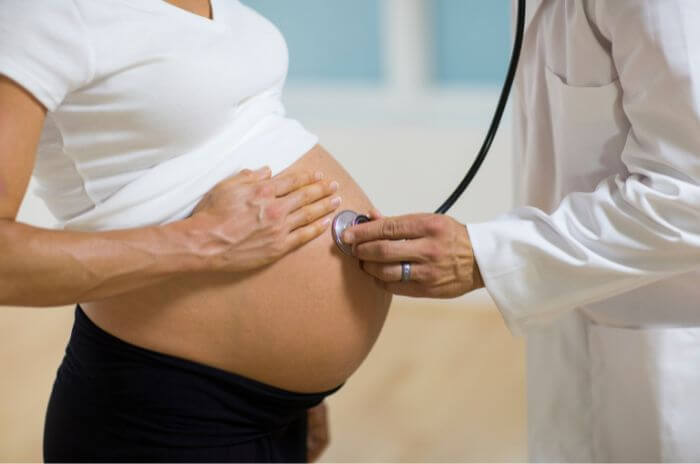
Pregnancy is one of the most exciting times in a woman’s life - and if it’s your first time, it may be a little scary, too! Nobody really tells you what to do when you find out you’re pregnant, and there’s a LOT of whacky advice out there.
The good news? We’re going to walk you through exactly what you need to do when you’re expecting. Consider us your pregnancy Fairy Godmothers!
I just found out I’m pregnant - What next?
Many women have an inkling that they might be pregnant pretty early on. Aside from feeling nauseous, tired and quite sensitive in the breast region, you may also be experiencing any or all of the following: joy, excitement, anxiety, stress.
Bringing a baby into the world is a big deal, and it is perfectly normal to be a little overwhelmed. Thankfully, your next steps are pretty straightforward!
Choose a Doctor
Selecting a healthcare professional is one of the first, and one of the most important, decisions you’ll make in your pregnancy. Your support team is going to play a huge role in the months ahead, so it's really important you take your time and go with your gut.
So. Your pregnancy test is positive. When should you visit the doctor? The short answer is, as soon as possible.
Your choice of healthcare provider may be dependent upon a number of factors, including your financial situation, previous pregnancies, overall health, and even your personal preference.
Whether you choose an Obstetrician, a Midwife, or stick with your GP, the most important thing is that you have the support you need both during and after your pregnancy. You can expect anywhere between 7-12 appointments with your doctor or midwife during your pregnancy (depending on a number of factors, including your age, previous pregnancies and pre-existing health conditions).

Book the First Appointment
During your first appointment, your healthcare provider needs to get a complete picture of your physical AND emotional health.
Depending on how far along you are, your healthcare provider may want to discuss:
- What stage of pregnancy you’re at, and when your baby is due;
- Your health history, including any previous pregnancies or current medications;
- Your mental health, and if you have any conditions that require monitoring;
- Foods and exercises that are - and aren’t - recommended during pregnancy;
- Your lifestyle (including drugs, alcohol and smoking)
A good GP will also ask about your welfare, to ensure that you’re safe and supported throughout your pregnancy. If you’re experiencing financial hardship, there are plenty of organisations that may be able to provide assistance. We’ve included a resource list at the bottom of the page for you.
Your healthcare provider may also check:
- Your blood pressure and urine;
- Your weight;
- Your tummy and your baby’s heartbeat.
It’s really important at your initial visit to be honest with your healthcare provider, and to make sure they take the time to answer any questions you may have. There are no silly questions, and it’s always better to get your information from a qualified healthcare professional than it is from discussion boards on the Internet! Write down your questions ahead of time, and consider bringing along your partner or a support person to ensure you get all your questions answered.

Prepare Your Body
Whether your pregnancy was planned and carefully prepared for, or a happy surprise, it’s important that you put your health and nutrition first for the next nine months (and beyond!).
Nutrition plays an essential role, not just in the development of your baby, but in terms of how you feel throughout your pregnancy, and even how fast you recover, post-delivery.
You can prepare your body by:
- Taking the best quality prenatal vitamin you can afford, as approved by your doctor;
- Quitting alcohol, drugs and cigarettes;
- Checking that any medications or supplements you’re taking are safe for pregnancy, especially if you’re taking herbal medicines;
- Reducing your caffeine intake - ask your doctor how much, if any, is safe for you;
- Researching pregnancy symptoms, so you know what to expect, and
- Educating yourself in the signs of early miscarriage.
While we all intellectually “know” what’s good and not so good for us, sometimes it can be helpful to have someone put together a plan for us. If you have the means, seeing a nutritionist or an exercise physiologist may be something you might like to look into. If you’re on a budget, make sure you seek out reputable sources of information - we’ve linked a few of our favourites at the bottom of the page.

Plan Ahead
There are many aspects of life where it’s safe to ‘wing it’... bringing a tiny human into the world maybe isn’t one of them.
To ensure you cover all your bases, and to make sure you feel (somewhat) in control of what’s going on, we recommend you start to make some plans.
Make sure you discuss with your partner, or consider for yourself, the following:
- Finances: Do you qualify for government support? Where will you invest more money on baby items, and where will you save?
- Your to-do list: Having a to-do list can keep you on track and give you a sense of control. Our top tip? Use a spreadsheet so you can divide your list into columns or tabs so you don’t get overwhelmed!
- When, how, and even IF you announce your pregnancy: How - or even if - you choose to announce your pregnancy is completely up to you. If you’re choosing to only tell a select few, you may want to ask them to keep your news private; and if you’re shouting it from the rooftops? We recommend a trip down Pinterest lane to get those creative juices flowing!
- Work: Again, every woman’s situation is different, and you have to do what’s best for you and your family. Does your workplace offer maternity leave? What government-funded options are available? Will you stay home, or will your partner? Just because you have one idea about how you’ll navigate work post-pregnancy, doesn’t mean that your partner - or even your boss - will have the same expectations. Communication is key!
Finally, Get Excited!
Pregnancy is a really special time, and bringing new life into the world IS a big deal! Whether it’s your first pregnancy or you’ve done it all before, this is a time to really take care of yourself. Ask all the questions you need to, make all the lists (and lists of lists!) - whatever you need to do to feel empowered and in control.
You’ve got this, Mama!
A few handy resources:
Financial hardship and support:
- St Vincent de Paul Welfare Assistance Line: 1800 305 330
- The Salvation Army Welfare Support: 1300 371 288
Pregnancy advice and support:
